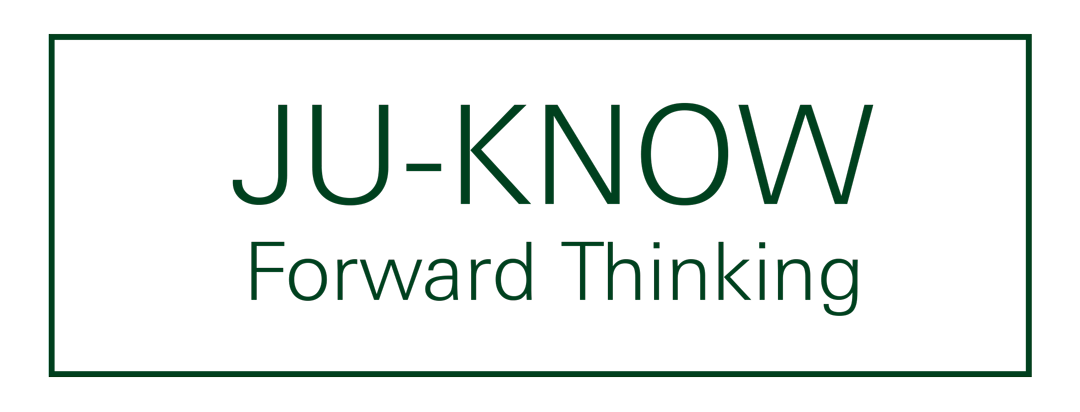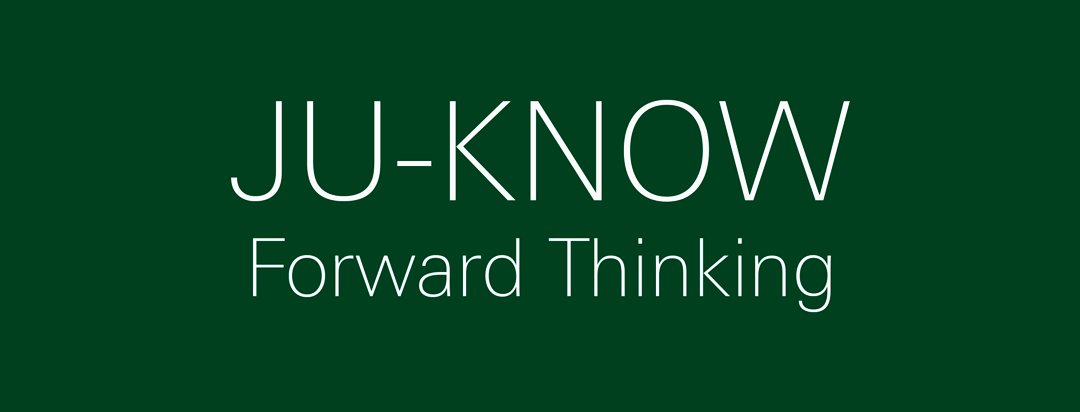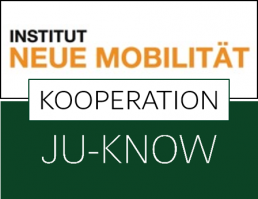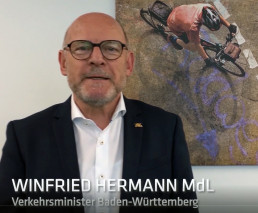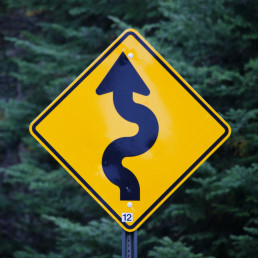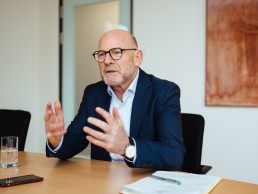Ursula Kloé is FutureWoman
“When it comes to innovations in the field of mobility you have to ask yourself: what is the benefit for the user?”
What are you working on?
With the projects of JU-KNOW we are supporting the change to New Mobility. We are using our expertise in different tasks: when developing innovations we focus on the potential users’ perspective, expectations, and requirements. When t comes to market launches of new mobility solutions we support our clients by choosing suitable events or strategic communication. And when our clients want to change the vehicle fleet to e-mobility we help both corporations and staff by conducting workshops, kick-off events and test facilities. The goal is: inspire people to new mobility, i.e. to switch to emission free vehicles, to sharing concepts and to multi modal transport solutions.
When it comes to sustainability: what positive headline would you like to read in the near future?
Green Life Quality-Index 2025 shows a strong connection between life satisfaction and innovative mobility solutions in both towns / cities and in rural areas.
Link to FutureWoman

JU-KNOW is partner of Cluster Electric Mobility South-West of e-mobil BW, State Agency for New Mobility Solutions and Automotive Baden-Württemberg
JU-KNOW is partner of Cluster Electric Mobility South-West of e-mobil BW. This association is another important sign from JU-KNOW and their work on the transformation of mobility.
In a cross-industry approach, the leading-edge Cluster Electric Mobility South-West collaborates with an impressive network of companies, universities and research institutes, providing a decisive impetus to the industrialisation of electric mobility in the South-West of Germany.
As the network for stakeholders from the entire added-value chain, the cluster offers access to current market and industry trends to make use of synergyies and accelerate innovation by cooperation.
Link: Cluster Electric Mobilty of e-mobil BW
“The successful cooperation of e-mobil BW GmbH and JU-KNOW during our start-up award ‘Transforming Mobility’ on behalf of e4 TESTIVAL was the basis for our partnership with the cluster Electric Mobility South-West. This affiliation perfectly complements JU-KNOW’s portfolio. We are looking forward to a fruitful cooperation and to many exciting projects to come – for shaping successfully the transformation to mobility of the future.”
Ursula Kloé, Managing Partner JU-KNOW GmbH
Institut Neue Mobilität and JU-KNOW start cooperation
From 2021 the Institut Neue Mobilität (INM) is part of the JU-KNOW network and task force.
INM operates as a partner specialised on networking across the New Mobility industry and works on the development of encouraging business models. INM have many years of experience in newly developing markets and sectors. We know the relevant / significant players and work closely with the Bundesverband eMobilität BEM (federal association emobilty). The networking character of INM offers the opportunity to get back to the diverse know-how of all partners within the network to deliver hands-on and custom-made solutions.
“To fully grasp New Mobility and to use it in a sensible way, it takes not only knowledge of expert but also experience and emotions. This is the aspiration of our work. This is what we want to achieve with our work. We not only want to pass on and communicate the important information but want to offer the possibility to experience, learn and understand the opportunities and challenges of New Mobility as well.”
Matthias Groher, MD Institut Neue Mobilität
“The cooperation between Institut Neue Mobilität and JU-KNOW came into life since both companies work passionately for the transition of mobility and the existing expertise on both sides complement themselves ideally. The combined know-how offers decision makers the perfect spectrum of information and proficiency for a successful change to New Mobility.”
Jürgen Häussler, Managing Partner JU-KNOW GmbH
JU-KNOW is partner of SAP devX Challenge Heidelberg
JU-KNOW: The Turnaround of Mobility can only succeed when all disciplines and all future users will be involved
We are pleased to be able to contribute to the design sprints of the SAP devX Challenge Heidelberg as experts of mindset shift and mobility trends.
We were able to engage Prof Dr Würzner as a Jury member. We would like to thank him for his participation.
Next steps: business model development, relevance for the region, e4TESTIVAL Professionals Day on19 March 2021
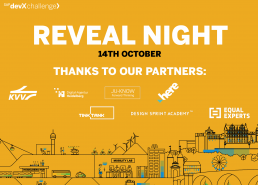
Winfried Hermann MdL, Minister of Transport of Baden-Württemberg - Excerpt from the online ceremony of the 2020 Start-up Award 'Transforming Mobility'
Mr Winfried Hermann MdL, Minister of Transport of the state of Baden-Württemberg.
Excerpt from the live stream of the online ceremony of the Start-up Award ‘Transforming Mobility’
Video in German.
Should you wish more information please contact us and we will get back immediately.
The Winners' logos
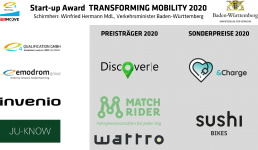
Scenarios for the time after Covid-19
What’s next after Covid-19?
We are looking back at stormy weeks – and yet we do not know what’s to come over the next weeks and months.
Nevertheless, we can feel something like relaxation – and at the same time a ‘feeling of departure’ … many prepare to use the positive effects of the pandemic, despite the negative consequences.
What’s next after the pandemic – once it’s over? More of the same? Or completely different?
Scenario for the ‘time after Covid-19’
NEVER WASTE A GOOD CRISIS
JU-KNOW have developed a scenario model to prepare for the future
Following the motto above, we have used the time in lockdown and worked on a scenario model covering differnet possible dircetinos of development.
If you want to learn more about it and see how we could support strengthen your business for the time after Covid-19 please contact us und we’ll get back to you asap.
Interview with Winfried Hermann MdL, Minister of Transport, Baden-Württemberg
What are the impacts of Covid-19 on the mobility turnaround in the state of Baden-Württemberg?
Interview with Baden-Württemberg’s Minister of Transport Winfried Hermann MdL
INTERVIEW IN GERMAN ONLY.
PLEASE GET BACK TO US WHEN YOU WANT TO LEARN MORE
Jürgen Häussler: Herr Minister, Corona und der Lockdown haben uns vor ganz neue Herausforderungen gestellt. Neben den durchaus kritischen und auch negativen Auswirkungen gibt es auch positive Effekte. Welche positiven Erkenntnisse nehmen Sie mit?
Minister Hermann: “Wir sehen, dass aufgrund der Ausgangsbeschränkungen auch Positives entstanden ist: Wir hatten deutlich weniger Verkehrslärm, sogar in der Stadt konnte man die Vögel zwitschern hören. Die Menschen haben sich umgestellt, arbeiten im Homeoffice, anstatt zu Pendeln. Plötzlich gab es keine Pendlerstaus mehr. Wir machen Video-Konferenzen, anstatt uns vor Ort zu treffen. Das reduziert den Verkehr und spart CO2. Die zentrale Erkenntnis ist: Ein Leben mit weniger Verkehr ist möglich! Das ist positiv und wir sollten alles daransetzen, nicht mehr in alte Muster zurückzufallen. Sprich: Wir sollten alles dafür tun, das Verkehrsaufkommen dauerhaft zu reduzieren und den Autoverkehr zurückzudrängen.”
JH: Was wäre der ‘Worst-Case’ für die Zeit nach Corona?
Minister Hermann: “In den ersten Wochen des Lockdown hatten wir auf den Autobahnen und auf den Bundesstraßen weniger als die Hälfte des normalen Verkehrs. Aber bereits mit den ersten Lockerungen ging der Autoverkehr wieder hoch und er steigt weiter an. Dagegen wachsen die Fahrgastzahlen in den Bussen und Bahnen nur langsam. Erfreulich ist, dass der Anteil am Radverkehr gestiegen ist. Das kann jeder sehen: So viele Radfahrer wie in den letzten Wochen habe ich in Stuttgart selten gesehen.”
“Für den Klimaschutz wäre es fatal, wenn Menschen, die vor Corona auf den ÖPNV umgestiegen sind, jetzt wieder verstärkt auf das Auto als Fortbewegungsmittel im Alltag setzen. Dass zum Beispiel Eltern ihre Kinder mit dem Auto zur Schule fahren, weil sie eine Ansteckungsgefahr im Schülerbus befürchten. Dann hätten wir plötzlich noch mehr Autoverkehr als vorher.”
JH: Über die Mobilitätswende wurde auch schon vor Corona viel diskutiert. Hat sich durch die Pandemie etwas geändert?
Minister Hermann: “Unser Ziel ist es, die Mobilitätswende voranzubringen. Dazu gehören natürlich Elektroautos und Elektrobusse. Wir sprechen aber auch über das E-Ticketing und die Vernetzung der Verkehrsträger wie Bahn, Carsharing oder Leihräder über sogenannte Mobilitätsknoten, um die erste oder letzte Meile zu überbrücken. Diese Themen möchte ich vorantreiben.”
“Zur Mobilitätswende gehört auch, dass wir eine einheitliche Datenarchitektur über alle Verkehrsanbieter und -nutzer hinweg aufbauen. Um die Menschen über die verschiedenen Mobilitätsangebote zu informieren, die zur Verfügung stehen. Um steuernd eingreifen zu können, zum Beispiel um den Verkehr verflüssigen und somit klimaschonender zu gestalten. Nicht neue Straßen braucht das Land, sondern die vorhandene Infrastruktur muss intelligenter genutzt werden – besser über den Tag und zwischen den Verkehrsträgern verteilt.”
JH: Kommunen haben die Situation während des Lockdown genutzt, um zeitlich befristet Straßenraum anders zu nutzen als bisher. Was können wir daraus lernen?
Minister Hermann: “Ich finde die Vorgehensweise der Kommunen sinnvoll, eine Neuaufteilung des Straßenverkehrsraums zunächst einmal zeitlich befristet auszuprobieren. Die Menschen lassen sich auf zunächst temporäre Änderungen eher ein, wenn sie wissen, das ist nicht endgültig. Es ist wichtig, den Bürgerinnen und Bürgern die Möglichkeit zu geben, Dinge auszuprobieren. Denn wir sind auf ihre Veränderungsbereitschaft angewiesen. Nur wenn sie bereit sind, es einmal anders zu machen und positiv zu erleben, erreichen wir Veränderung.”
JH: Was kann jeder Einzelne aus der Zeit des Lockdown mitnehmen?
Minister Hermann: “Jeder entscheidet selbst, wie er sich fortbewegt: Nehme ich das Fahrrad oder das Auto. Oder gehe ich zu Fuß. Wir alle sind unmittelbar beteiligt. Unsere Entscheidungen beeinflussen, wie sich der Verkehr entwickelt. Wir tragen Verantwortung für die Folgen unseres Handels. Das muss stärker thematisiert werden. Ich glaube, wir haben in der Corona-Krise gelernt, dass wir achtsamer sein müssen im Umgang mit unseren Mitmenschen und der Umwelt. Wir haben auch erkannt, dass das, was wir tun, unmittelbare Folgen hat.”
JH: Welche Rolle spielen aus Ihrer Sicht Start-up Unternehmen bei der Mobilitätswende?
Minister Hermann: “Viele gute Ideen kommen von Start-ups. Gerade die Neue Mobilität braucht innovative Technik und neue Geschäftsmodelle und Konzepte. Hier sind Start-ups unverzichtbar. Historisch betrachtet waren auch Carl Benz, Gottlieb Daimler und Wilhelm Maybach Start-ups, die man im 19. Jahrhundert „Gründer“ nannte! Sie hatten den Mut, in einer Gesellschaft, deren Mobilität vom Pferd und später der Eisenbahn geprägt war, zu sagen, ich mach was ganz anderes. Was Benz und Co gemacht haben, war gemessen am Zeitgeist absolut verrückt. Viele fragten damals: Wo sollen die Straßen herkommen? Wo der Treibstoff? Auch heute stehen wir wieder vor einer Wende und müssen Antworten finden.”
“Große Unternehmen sind wie große Institutionen. Sie sind in hohem Maße leistungsfähig, mit genau dem, was sie in ihrem Programm haben. Andererseits sind sie weniger wendig. Hier haben Start-ups einen entscheidenden Vorteil.”
JH: Herr Minister Hermann, wir bedanken uns sehr für das informative Gespräch.
Interview conducted by Jürgen Häussler, CEO & Managing Partner JU-KNOW
